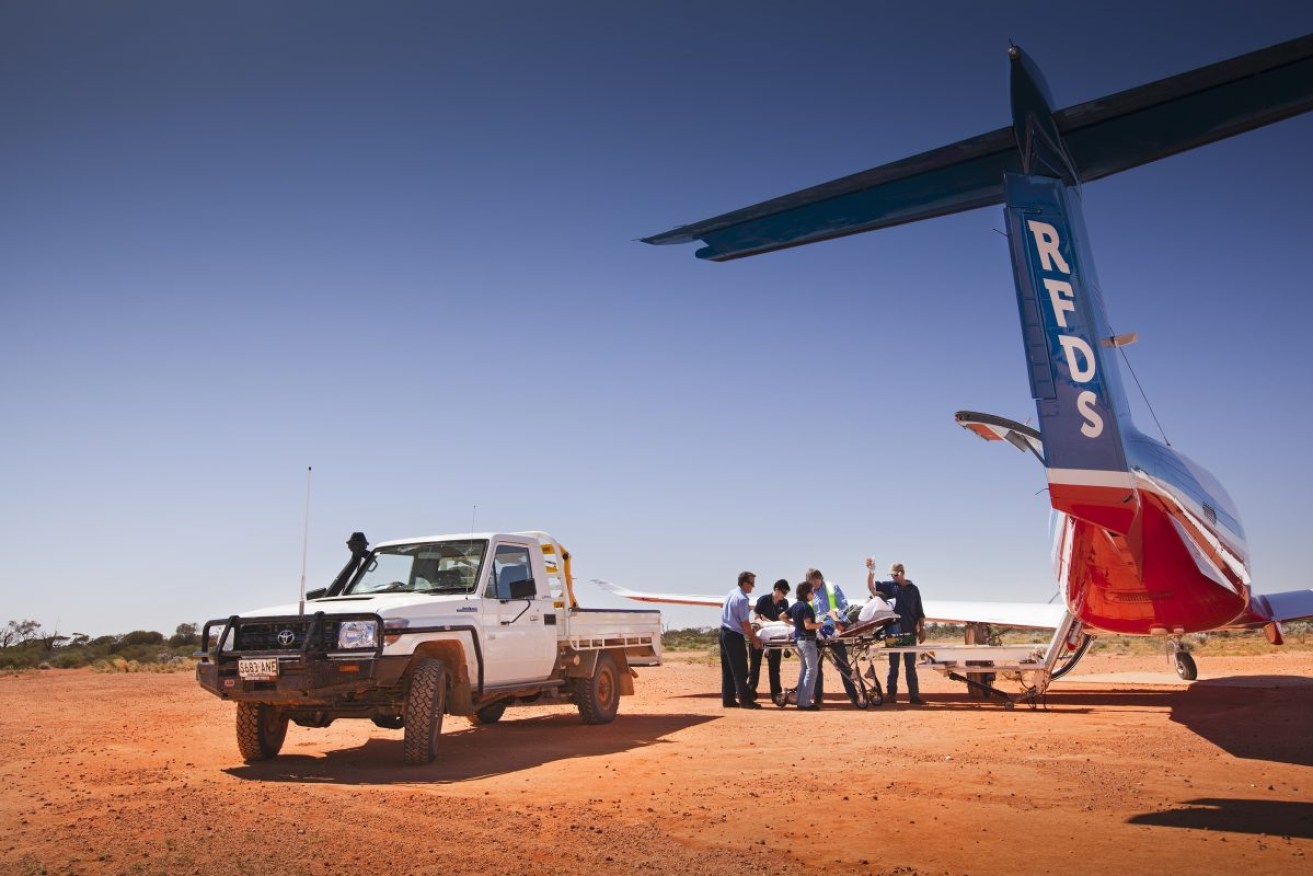Royal Flying Doctor Service to face tribunal over underpayment claim
The Royal Flying Doctor Service has been accused of underpaying healthcare workers in remote South Australian communities, with the employees’ union set to lodge a formal underpayment of wages claim to the SA Employment Tribunal this week.

The Royal Flying Doctor Service says many of its services rely on 3G technology which is about to be switched off. Photo: RFDS/AAP
The claim relates to the Royal Flying Doctor Service’s (RFDS) payment of health service assistants, who provide clinical assistance to nurses in outback communities.
InDaily understands the RFDS currently employs eight permanent part-time health service assistants on a yearly salary of about $42,000.
Their usual working hours are 9am to 5pm five days a week on a two-weeks-on, two-weeks-off, fly-in fly-out basis.
According to the Health Services Union (HSU), during the two weeks they are rostered to work each month, they are expected to respond to medical-related callouts outside of work hours without additional remuneration or penalty rates.
The assistants are currently employed under the 2020 Health Professionals and Support Services Award, but the union argues they should instead be paid at least $60,000 a year in accordance with the Ambulance Service Award.
HSU state branch secretary Billy Elrick told InDaily that union officials had first raised concerns with the RFDS about its payment of health service assistants in June last year.
He said following “unproductive” discussions, the union would this week lodge a formal underpayment of wages claim to the SA Employment Tribunal.
“It is our sincere hope that the RFDS will do the right thing and show that they value the critical work that the HSAs (health service assistants) do,” he said.
InDaily understands many of the health service assistants have experience or qualifications in paramedicine, nursing and first aid.
They perform duties such as CPR, taking blood pressure and preparing IV fluids.
The role was created in response to the passing of “Gayle’s Law” in South Australia in 2017, which legislates that nurses in rural and remote areas must be accompanied by another worker when responding to medical callouts.
The RFDS must comply with Gayle’s Law as a health organisation that delivers primary healthcare and 24-hour emergency services for those who live in remote and rural South Australia.
Elrick said the HSU was “disappointed that such a reputable organisation like the RFDS isn’t paying their workers a fair wage”.
“Our primary concern is that the wage does not fairly represent the work being undertaken by the health service assistants,” he said.
“We also have concern that there are not adequate allowances being provided, such as living away from home, meal expenses, on-call rates and other sorts of allowances as part of the salary packaging and it’s not clear if RFDS has any intention of providing them.”
Elrick said the HSU was “not eager to arbitrate” the matter and was not planning any industrial action.
“We just want a frank and open discussion about what the employer is willing to provide and they’ve been unwilling to do that, and that’s why we’ve taken this approach to go through the tribunal,” he said.
“Part of our claim will be that the health service assistants should be paid in accordance with the Ambulance Award and that award has a range of allowances and a higher hourly wage than what Royal Flying Doctor Service has provided.
“I think from any pub test of this sort of matter, it’s pretty fair and reasonable for employees to expect at least $60,000 in remuneration for doing two weeks on, two weeks off, and undertaking the duties that they do.”
Health service assistants declined to speak to InDaily.
In a statement, a spokesperson from the RFDS told InDaily that the organisation paid health service assistants above the 2020 Health Professionals and Support Services Award.
“The RFDS continues to be open and accessible in discussions with its staff and the Health Services Union on this matter,” they said.
The RFDS assists more than 56,000 patients in South Australia and the Northern Territory each year.
It operates four aeromedical bases in Adelaide, Alice Springs, Darwin and Port Augusta, as well as three remote primary healthcare clinics in Andamooka, Marla and Maree.




